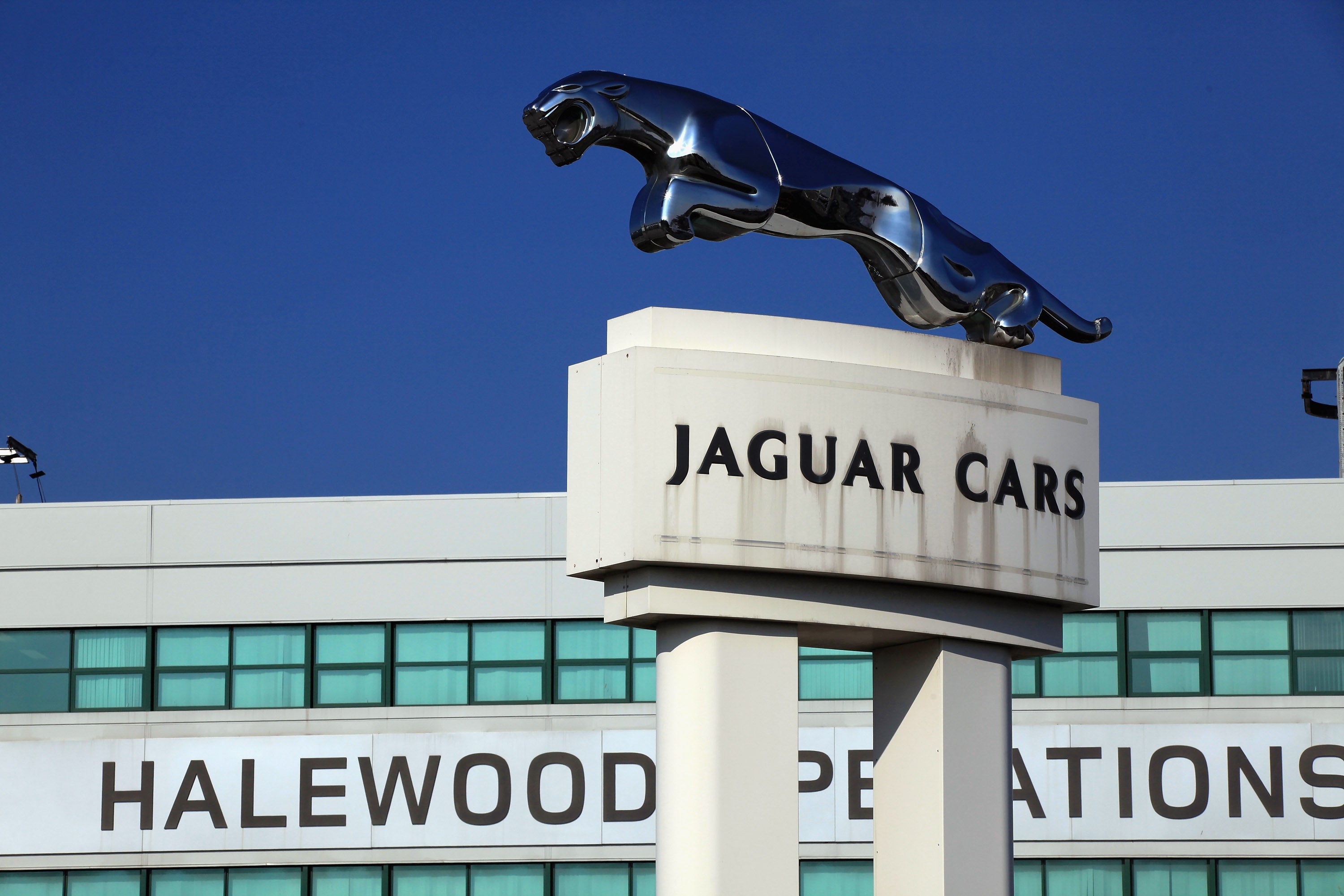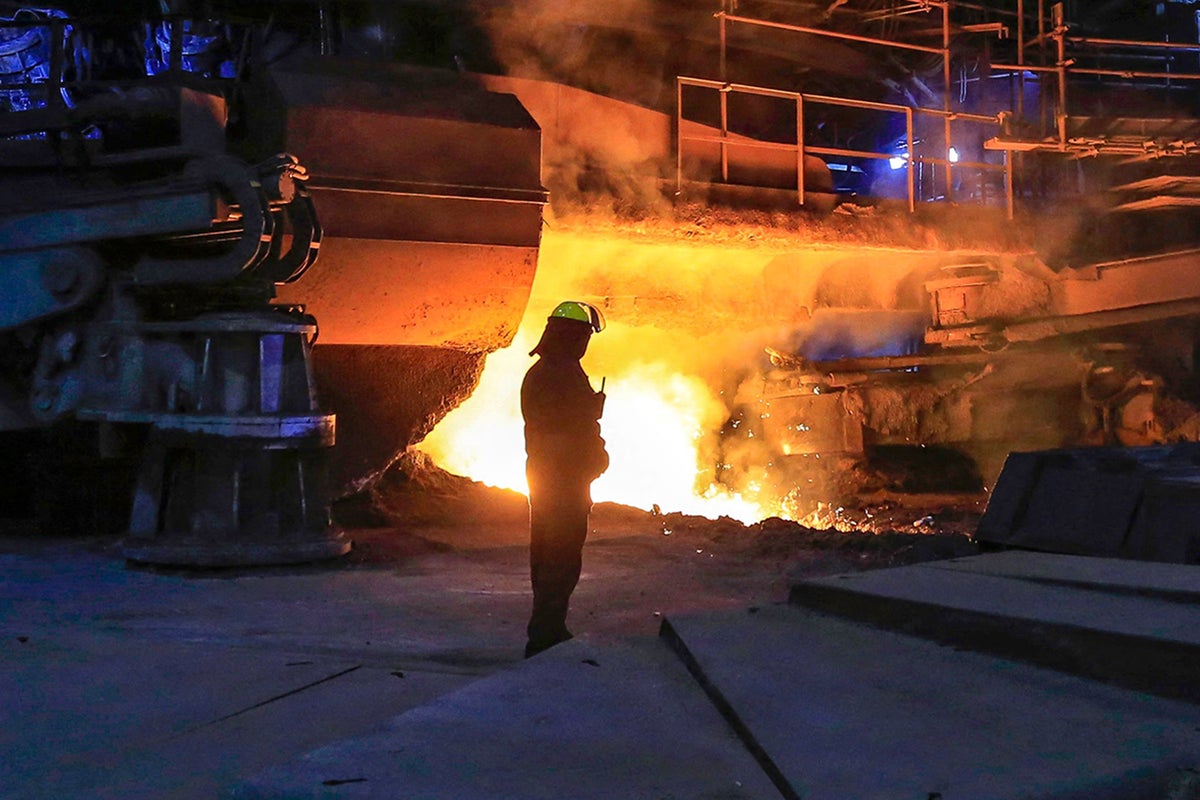The UK government has intervened to take back British Steel from its Chinese owners, in an unprecedented move which could amount to the most significant nationalisation this century.
Government ministers have accused the company’s owners, Jingye, of attempting to sabotage the Scunthorpe plant by allowing it to
“It is an explicit strategy of the Chinese Communist Party to undermine the industrial base of foreign countries,” said Luke de Pulford, director of the Inter-Parliamentary Alliance on China.
The government is meeting with Jingye representatives today in a bid to save the steelmaking plant from closure.
Meanwhile, China is warning the UK against “politicising” British Steel, according to reports from AFP, in the midst of criticisms over Chinese ownership by business secretary Jonathan Reynolds.
Lin Jian, a spokesperson for China’s foreign ministry, urged the British government to “avoid politicising trade cooperation or linking it to security issues, so as not to impact the confidence of Chinese enterprises in going to the UK”.
The drastic action taken on British Steel adds pressure to the UK’s relationship with China, in particular since both invest in each others economies.
The current Trump trade war shows that China is willing to retaliate when pushed, with current tariffs on US goods escalating to 125 per cent.
British Steel and Chinese investment
In the wake of Britain’s emergency takeover, Mr Reynolds confirmed that there must now be a “high trust bar” when dealing with firms from China.
“I think we have got to be clear about what is the sort of sector where, actually, we can promote and co-operate, and ones frankly where we can’t,” he told Sky News hosts on Sunday.
He added: “I wouldn’t personally bring a Chinese company into our steel sector.”
Overall, Chinese foreign direct investment (FDI) into the UK stood at £4.2 billion in 2023, according to government figures.
But British investment into China was actually twice as high, at £8.8 billion in the same year.
However, both economies’ mutual investment have gone down significantly since Covid, dropping by around a third on either end.

Another point of tension is the UK’s new foreign influence registration scheme (FIRS), due to come into force on 1 July.
Late last year, a new alleged spying scandal involving a Chinese individual close to Prince Andrew led to pressures for China to be classified as an enhanced risk via FIRS.
China is currently not listed alongside Russia and Iran, but some MPs and Lords have expressed concern about why China is not on the enhanced tier considering the “epic threat” it poses to UK security.

Officials have alleged that the near-shutdown of Scunthorpe was part of an attempt to sabotage the UK’s last remaining virgin steel plant – making the UK reliant on virgin steel from China.
China exported iron and steel products worth $288 million during 2024, according to the UN trade database.
It is unclear how much virgin steel, produced directly from iron ore and known for high strength, is manufactured in British Steel’s Scunthorpe plant.
China-UK trade: luxury and electronics
China is the UK’s fifth largest trading partner, with total trade at £89 billion in the year up to November 2024.
But trade between the two countries has been dwindling, down by 13 per cent (£13.3 billion) from the previous year.
Exports from the UK to China saw the biggest decrease last year, down by 17.4 per cent.
Around 86,900 businesses in the UK import goods from China.
The UK is highly dependent on goods from China, making up 95 per cent of all goods imported to the UK. It also buys more goods from China (£53.9 billion) than it exports (£19.9 billion).
The top products bought from China span across technology and electronics, including phones, electrical goods, and cars such as electrical vehicle giant BYD.

The UK also exported billions in cars to China last year, at £4.7 billion in value; with British brands like Rolls Royce and Jaguar Land Rover (JLR) big players in the luxury car market.
China have increasingly become buyers of luxury products more widely, with household names like Burberry and Charlotte Tilbury making gains in the Chinese market.
Strong ties in financial services
While UK ministers warn against Chinese companies’ involvement in key industries, several British companies have benefitted from providing services in China and Hong Kong.
Financial services, such as banks and investment managers, are one of the UK’s biggest exports to China and Hong Kong, amounting to £4.4 billion across the two regions in the year up to November 2024.
When chancellor Rachel Reeves visited China in January, she sought deeper economic ties within financial services.
At the time, China had recently granted new commercial licences for leading UK firms like Schroders, and Aberdeen Investments (formerly abrdn).
HSBC and Standard Chartered are among two British financial companies which have had a longstanding and significant presence in China.

If the UK threatens Chinese investment into the UK, then British services exporting to China and Hong Kong could also face disruptions if China chooses to retaliate.
Other top services exported to China include travel (£6.3 billion) and other business services (£1.2 billion), while British transportation exports have jumped by 26 per cent to nearly £1 billion in the same period.




